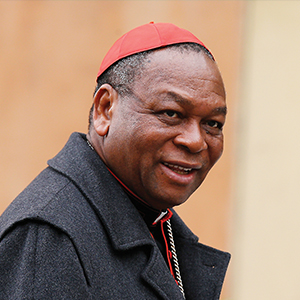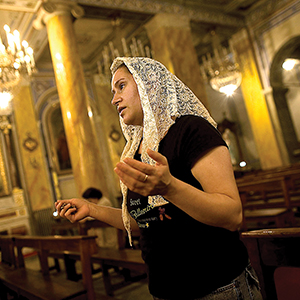Six weeks after Turkey concluded a landmark deal with the European Union, the country’s longest-resident Catholic bishop has warned that Christian minorities are still being denied rights and facing a bleak future.
“Over the 40 years I’ve been here, I’ve seen no real change,” said Bishop Louis Pelâtre, French-born apostolic vicar of Istanbul. “The EU has long been interested in Turkey, and has promised us help in regaining our confiscated properties and possessions. But the Government has simply ignored its directives and failed to observe judgments in our favour by the European Court.”
The 75-year-old bishop, an Augustinian, spoke amid concern over an apparent hardening of attitudes towards Christian Churches by the Islamist Government of President Recep Tayyip Erdogan, which agreed on 20 March to accept refugees returned from Greece in return for revived EU accession talks and visa-free travel for its citizens. Speaking to The Tablet on Monday, he said no significant improvements were possible for Christians without a “complete shift of mentality” by the Turkish Government.
“If people have influence with the authorities here, they should use it – but we don’t expect anything significant in the position of minorities,” Bishop Pelatre said. “This country’s rulers don’t accept foreign pressure. Like all Christian Churches, Catholics have no official legal existence here. All we can do is try to survive”.
Religious minorities have long complained of being denied rights in Turkey, most of whose 77 million inhabitants are Sunni Muslims. In a November 2014 visit, the Pope appealed for greater tolerance for Christian groups, including the Catholic Church, with its seven dioceses and apostolic vicariates in the country, 54 parishes and 13 pastoral centres.
Under a 2008 restitution law and 2010 decree on minority faith protection, the Government claims to have returned over 1,000 seized and confiscated assets to non-Muslim associations, while allowing construction of a dozen Catholic and Orthodox churches and several Jewish synagogues.
However, human-rights groups have questioned the claims and voiced fears over renewed discrimination since the victory by President Erdogan’s Justice and Development Party in elections last November. In late April, church representatives in the southern city of Diyarbakir took legal action in a bid to regain six local churches, after they were seized by the state with hundreds of other buildings in an alleged security clampdown against Kurdish insurgents. Turkey’s premier, Ahmet Davutoglu, claimed the confiscations, which included Diyarbakir’s historic Armenian Apostolic St Giragos Church, were part of a plan to rebuild the war-damaged city on the Tigris River.
The pastor at Diyarbakir’s seized Protestant church, Ahmet Guvener, said Ankara had acted “not to protect the churches but to acquire them”, and Christian leaders would appeal to the European Court of Human Rights if they were not returned.
Meanwhile, the Istanbul-based Orthodox Ecumenical Patriarch Bartholomew requested talks with Erdogan after reports that legal acts for returning state-confiscated land to the Orthodox Church were now being cancelled.
In February, the Vatican resumed diplomatic ties with Turkey, 10 months after they were suspended by Ankara in protest at the Pope’s use of the term “genocide” in April 2015 when speaking about the killing of some 1.5 million Armenians by Ottoman Turks in 1915-18.
05 May 2016, The Tablet
Catholics warn of worsening outlook after deal with EU
 Loading ...
Loading ...
Get Instant Access
Subscribe to The Tablet for just £7.99
Subscribe today to take advantage of our introductory offers and enjoy 30 days' access for just £7.99



